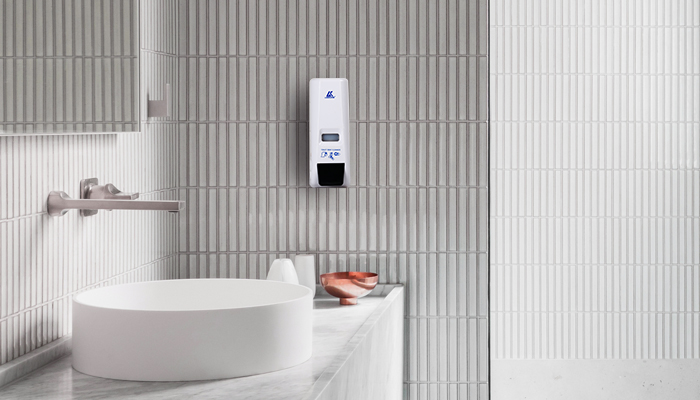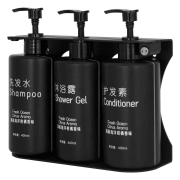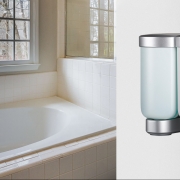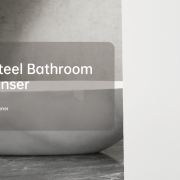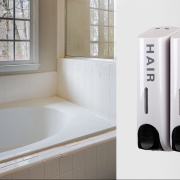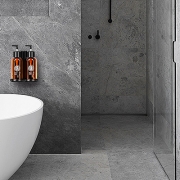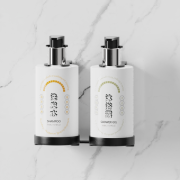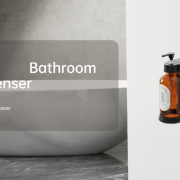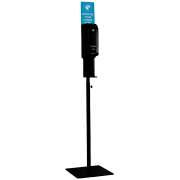The Future of Hygiene: How Smart Soap Dispensers and Hotels Are Redefining Cleanliness
According to the World Health Organization’s “World Health Statistics 2025”, the global average life expectancy dropped by 1.8 years between 2019 and 2021, the largest decline in modern history, reversing the health progress of the past decade. In the wake of heightened health awareness in today’s world, hygiene has become a top priority, especially in shared spaces like hotels and public bathrooms. With increasing awareness of bacteria, viruses, and cross-contamination risks, innovative solutions such as Leekong soap dispensers, advanced cleaning protocols, and sustainable bathroom products are transforming how we maintain cleanliness. From Leekong soap dispensers to eco-friendly shampoo solutions, the bathroom is undergoing a technological and sustainable transformation. This blog explores how innovation is redefining cleanliness in hospitality, ensuring safer stays for guests worldwide.
1. The Rise of Smart Soap Dispensers: Leekong’s Innovation
One of the most significant advancements in hygiene technology is the automatic soap dispenser, such as those produced by Leekong. Unlike traditional piston-based dispensers, which struggle with viscosity changes in soap due to temperature fluctuations, Leekong’s models use peristaltic pump technology to ensure consistent soap output regardless of environmental conditions. This design also reduces noise (below 60 decibels) and minimizes contamination since the soap never touches internal machine parts, making it ideal for hospitals, hotels, and public restrooms.
Additionally, these dispensers are eco-friendly, as they eliminate unnecessary plastic waste from disposable soap bottles. With features like adjustable soap volume and touchless operation, they help reduce germ transmission—a crucial factor in post-pandemic hygiene standards.
What’s more, a touchless hygiene breakthrough in soap dispenser.
One of the most impactful innovations is the Automatic Soap Dispenser, a touchless system designed for high-traffic areas like hotel bathrooms. Unlike traditional dispensers, technology offers:
Peristaltic Pump Mechanism – Ensures consistent soap flow without clogging, even with thick liquids like sanitizer.
Germ-Free Operation – Soap never touches internal parts, preventing contamination.
Eco-Friendly Design – Reduces plastic waste by using refillable containers.
Quiet & Efficient – Operates below 60 decibels, making it ideal for luxury hotels.
Hotels adopting these dispensers report higher guest satisfaction, as travelers increasingly prioritize hygiene in their stay experience.
2. Hotel Hygiene: A Growing Concern
The Problem with Traditional Hotel Hygiene
The hotel has always adhered to what they call hygiene standards and they have long faced scrutiny over cleanliness. However, with an increasing number of complaints from customers regarding hotel hygiene, investigations into hotel hygiene have been carried out around the world. Eventually, the research has revealed a shocking fact and with reports revealing shocking practices like using the same towel to clean toilets and cups. Studies show that even after washing, towels can harbor dangerous bacteria like Bacillus cereus, which can survive harsh cleaning processes.
– Reused towels often harbor bacteria like E. coli and Staphylococcus even after washing.
– Manual soap dispensers can become breeding grounds for germs due to frequent contact.
– Single-use plastic shampoo bottles contribute to massive environmental waste—millions end up in landfills yearly.
The COVID-19 pandemic, which emerged in late 2019, fundamentally altered the world’s approach to hygiene and public health. Healthy life expectancy (HALE) decreased by six weeks due to the increase in COVID-19-related anxiety and depression, offtaking part of the benefits from the decline in non-communicable disease mortality. By 2025, its effects are still evident—from touchless soap dispensers in hotels to stricter sanitation protocols in bathrooms worldwide. It’s prompting hotels to seek smarter, more sustainable solutions.
To combat this, many hotels now implement strict sanitization protocols:
– Daily disinfection of high-touch surfaces (doorknobs, remote controls) with chlorine-based solutions.
– Sealed packaging for towels and linens to reassure guests of cleanliness.
– UV sterilization and hospital-grade cleaning for bathrooms to eliminate pathogens.
However, guests can take extra precautions by:
– Bringing their own towels and toiletries.
– Avoiding direct contact with bathroom surfaces and using disinfectant wipes.
– Choosing hotels that prioritize hygiene certifications and transparent cleaning practices.
3. The Role of Shampoo and Bathroom Products in Hygiene
Beyond soap dispensers, shampoo and body wash play a role in maintaining hygiene. However, traditional plastic shampoo bottles contribute to environmental waste. Innovators like SOAPBOTTLE have introduced dissolvable soap packaging, where the container itself is made of soap and can be used until it dissolves—eliminating plastic waste entirely.
Hotels are also shifting toward bulk dispensers for shampoo and conditioner, reducing single-use plastic while ensuring consistent hygiene standards. This approach not only cuts costs but also aligns with sustainability trends.
4. The Hotel Bathroom: A New Frontier for Hygiene Tech
Beyond soap, hotels are upgrading entire bathroom experiences with:
- Antimicrobial Surfaces
– Copper-infused countertops and self-cleaning tiles reduce bacterial growth.
– UV-C light sanitizers automatically disinfect sinks and toilets between uses.
- Smart Showers & Water Conservation
– Digital temperature control minimizes contact with handles.
– Water-recycling systems filter and reuse shower water, appealing to eco-conscious guests.
- Sustainable Shampoo & Toiletry Solutions
– Bulk dispensers replace single-use plastic bottles, cutting waste by up to 80%.
– Solid shampoo bars (like those from Lush) eliminate packaging entirely.
– Dissolvable soap containers (e.g., SOAPBOTTLE) turn into usable soap, leaving zero waste
Guest Expectations: Hygiene as a Deciding Factor
A 2023 survey by Hotel Management found:
– 72% of travelers choose hotels based on cleanliness ratings.
– 65%= prefer touchless amenities (e.g., automatic soap dispensers, motion-sensor faucets).
– 58% would pay more for a room with verified hygiene certifications (e.g., GBAC STAR).
Hotels like Marriott and Hilton now advertise their hygiene protocols prominently, showcasing partnerships with brands like Leekong to build trust.
5. The Future: Combining Technology and Sustainability and Where Technology Meets Sustainability
As hygiene expectations rise, the future will likely see:
– More touchless technology (like Leekong’s dispensers) in bathrooms.
– AI-powered cleaning robots in hotels to ensure consistent sanitation.
– Biodegradable and self-cleaning materials for towels and surfaces.
The next wave of hotel hygiene includes:
– AI Cleaning Robots – Autonomous devices that sanitize bathrooms post-checkout.
– Biodegradable Linens – Towels and robes made from antimicrobial bamboo fibers.
– Voice-Activated Amenities – “Hey Google, dispense soap” could replace physical contact entirely.
Conclusion
From smart soap dispensers to hotel hygiene overhauls, our awareness of hygiene and cleanliness is constantly improving and the way we approach cleanliness is evolving. By embracing technology, stricter protocols, and sustainable alternatives, we can create safer, more hygienic spaces—whether in hotels, public restrooms, or our own homes.
What’s Your Take?
– Would you trust a touchless dispenser over a traditional one?
– Do you bring your own toiletries when traveling?
Share your thoughts in the comments!

